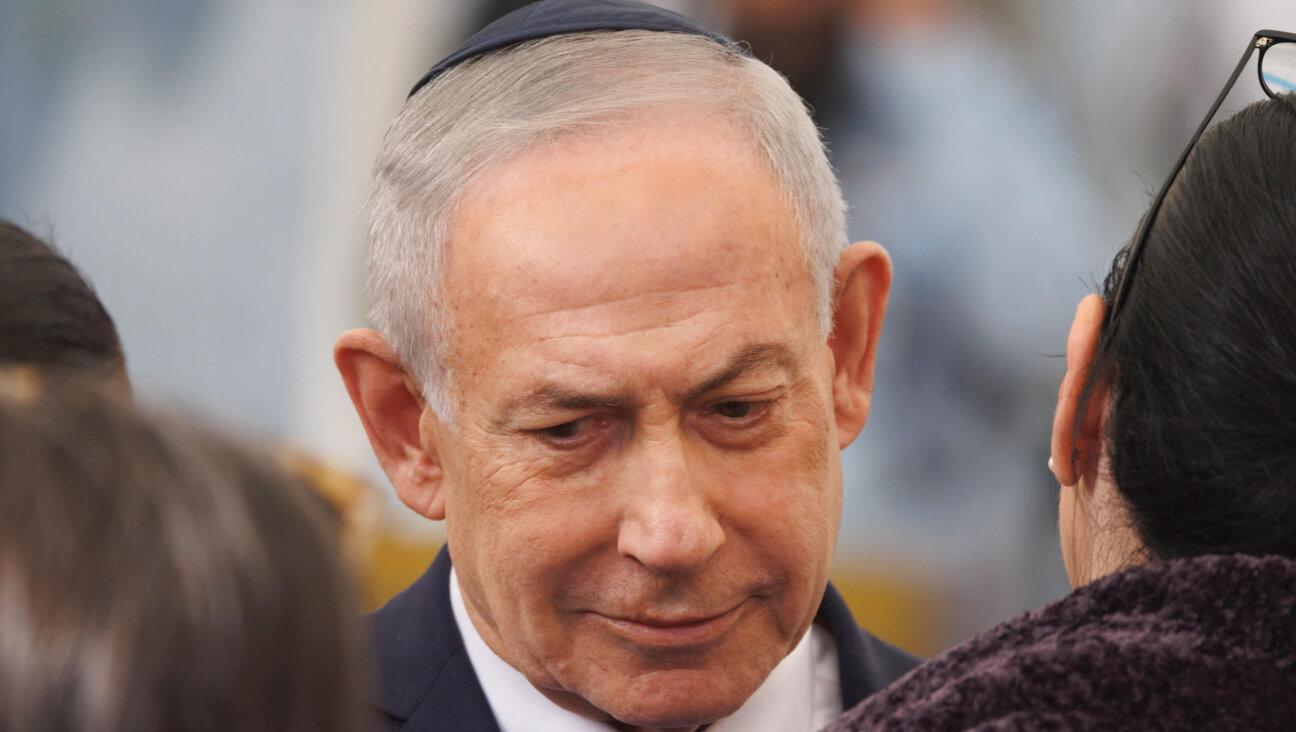Who’s Afraid Of the Big, Bad Israel Debate?
Earlier this month a Torah commentary that I wrote for the Jewish Theological Seminary’s weekly student newsletter was rejected on the grounds that it included a critique of Israeli government policies. The decision by a member of the administration not to print the Torah commentary prompted the resignation of the student editor of the publication, and has sparked intense debate within the institution.
In the Torah commentary, I spoke of the symbolism in last week’s Torah portion, Tetzaveh, of the names of the Tribes of Israel inscribed on the clothing of the High Priest. All political leaders, I suggested, implicitly “wear” the names of those whom they represent. Thus, actions by the State of Israel — the Jewish state — are, in effect, actions in the names of all Jews. The fact that the State of Israel acts in our names, I argued, places on all of us the burden of challenging the government to act justly.
In accordance with the “Shnai Luchot Habrit,” a 17th-century text, I also proposed a connection between the clothing of the High Priest and the teshuva, or repentance, of the Jewish people. I suggested that we need to do teshuva for the ways in which we have ignored the story of the Palestinians in our teaching and preaching about Israel.
This piece, rooted in Torah and in my own experience, was not, as some might imagine, a summons to dismantle the modern state of Israel, but rather a challenge for a country I love to become a more just place.
The decision by JTS to censor this piece points to a disturbing trend within the American Jewish community to silence dissenting views on Israel. Again and again, we are called on to support Israel unconditionally, to visit Israel and to frequent Israeli merchants. There is an assumption that the call for unconditional support of Israel is a “neutral” position and there is little discussion of the moral repercussions of such unqualified support.
Those of us who support an end to the 35-year occupation in the West Bank and Gaza and who oppose military operations in the territories may think twice about monetarily supporting Israel. At the same time, those of us who have spent significant time in Israel and who have close friends and relatives there have seen first-hand the economic toll that the war is taking on ordinary citizens, both Israeli and Palestinian. We may not want to punish our newly unemployed friends by refusing to spend money in Israel. We are also aware that a downturn in the Israeli economy creates an even more dramatic downturn in the Palestinian economy. We want to support ordinary Israelis without funding military operations. And we want to support ordinary Palestinians without funding suicide bombers.
In other words, we are confused.
This confusion is made more acute by the virtual absence of space within the American Jewish communal discourse for open and honest discussion about Israel. Those who voice discomfort about offering unconditional support of Israel are often called traitors or are accused of siding with the suicide bombers. We are so preoccupied with presenting the world with a unified position on Israel that we have shut down discussion even within our own institutions.
Since the independent circulation of my Torah commentary last week, dozens of JTS students and faculty members, many of whom I did not previously know, have thanked me for giving voice to their own ambivalence about Israel. A number of these students and faculty members expressed a fear of speaking openly about Israel and a sense that their opinions fall outside of the bounds of acceptable discourse in our community and in the American Jewish community as a whole. Some second-year rabbinical students, contemplating spending their third year in Israel as required by the program, have indicated that they feel unable to speak honestly about their hesitations about moving for a year to a country whose government has been party to human rights abuses.
The reaction of JTS students and faculty to the controversy surrounding the censorship of my Torah commentary demonstrates the extent to which our community needs to have difficult conversations about our relationship to Israel. However, even within our seminaries — the places where we train rabbis and other communal leaders — we are afraid to create space for such conversations.
What are we afraid of?
JTS administrators argued last week that the publication of my Torah commentary might deter the Israeli Tourism Ministry, which subsidized last month’s JTS mission to Israel, from supporting another student mission. Some have also suggested that JTS donors might be less willing to give to an institution whose students criticize Israel.
Will we allow financial concerns to determine the bounds of our conversations?
Or perhaps we are afraid to ask searching questions of ourselves and others. The events of the last three years, as well as the publication of new histories of the Israeli-Palestinian conflict, have disabused many of us of the comforting myths that once allowed us to support Israel unconditionally. It may be easier for us to return to these myths, particularly when we feel ourselves to be under attack, than to develop new ways of speaking and thinking about our relationship with Israel.
The beauty of the Jewish tradition lies in its openness to debate and dialogue. We do not always have to agree with one another. We do, however, have to allow each other to speak.
Jill Jacobs is a fifth-year rabbinical student at the Jewish Theological Seminary.















